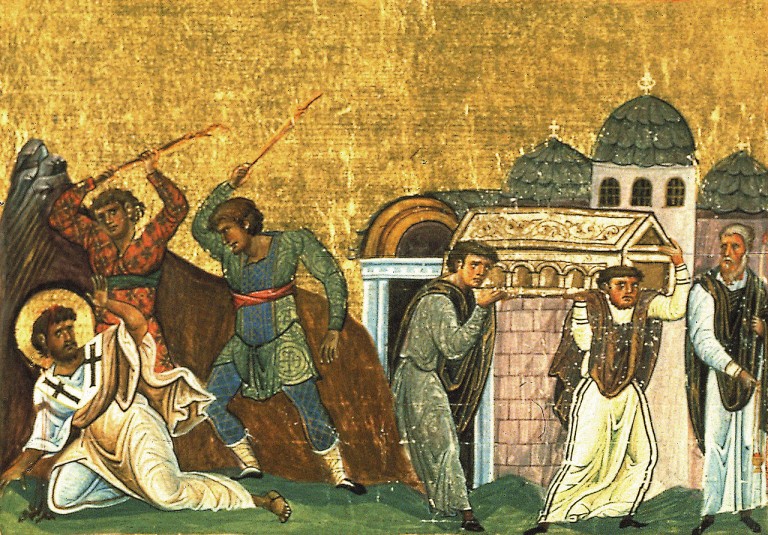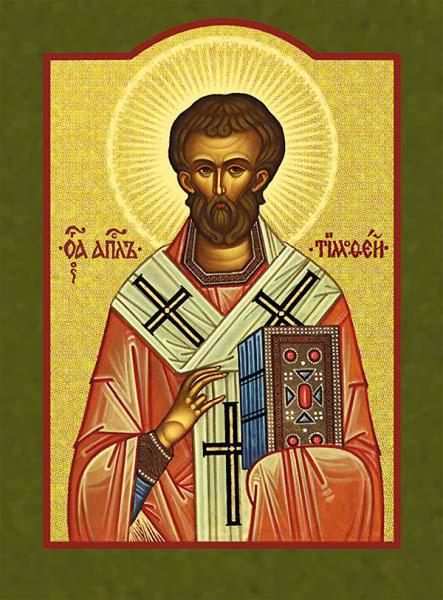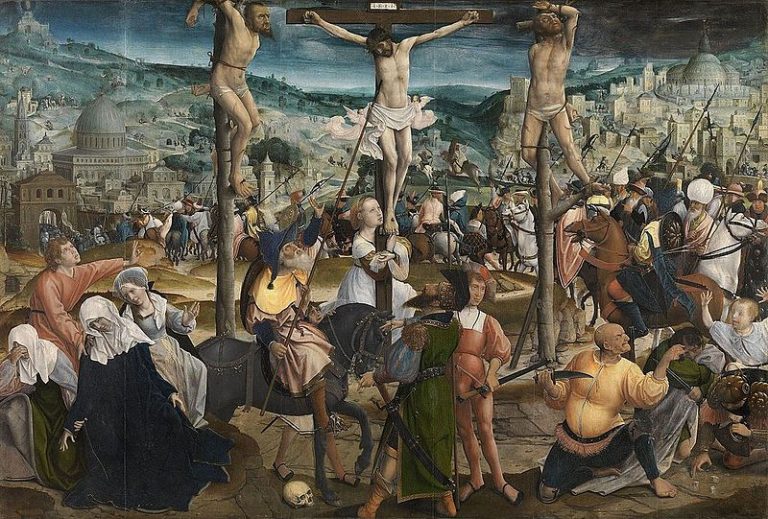Apostle Timothy: Mission and idolatry
The apostle Timothy came from the town of Lystra in Lycaonia. He had a Greek father, a pagan by religion, and his mother Eunice was a Christianized Judean. At an early age Timothy was orphaned by his father and was raised by his grandmother Lois, providing him not only with material goods but mainly with spiritual goods. In Lystra he met Paul, was captivated by the divine love that possessed the fiery apostle of Christ, apprenticed himself to him and followed him on his second tour as a valuable companion and fellow soldier for the evangelization of the Gentiles. On Paul’s 3rd tour, Timothy followed him to Ephesus. From there he was sent by the apostle with Erasmus to Macedonia. He followed Paul to Corinth, Troas, Jerusalem, and Rome, where he probably became a participant in his passion-binding. In the apostle’s 4th tour, while still quite young, he was ordained first bishop of Ephesus. This is the reason why Paul writes to him in counsel, “Let none of thy youth be despised, but be a type of the believers in that which is in reversion, in love, in love, in spirit, in faith, in chastity” (1 Timothy 4:12). In fact, it was in Ephesus that he met the Lord’s favorite disciple John, who was his teacher. Bishop Timothy of Ephesus’ love and care for his flock led him to protest strongly – and at the risk of his life – against the pagan festival held in honour of the goddess Artemis. This festival involved masked people, with pagan effigies on their hands, performing orgies in the streets and squares of Ephesus. There, courageously and firmly, he controlled the pagans by confessing faith in Christ, not only in words and theories but also in deeds, trying to prevent them. No, it was not suicide, it was confession! No, he was not defeated by idols and their father, the devil, but he was victorious by giving the Church another witness who intercedes for men to God. His synaxis has gone down in history as a timeless check on all those – even orthodox Christians – who masquerade for various reasons as other idolaters of Ephesus, defiling the “in the image” God has given them and turning away from the possibility of “in the likeness”. He fell asleep on January 22, 97 AD after being stoned to death by the pagans, abandoned in semi-death and shortly afterwards surrendered his spirit into the hands of God.

Idolatry and Mission
Idolatry is anything that replaces the worship of the one true God. At times people have replaced God with the Sun or natural phenomena, with their material creations – such as effigies or statues, with mythical gods – such as Zeus, with people – such as the Roman emperors – and with their passions. Today, idolatry is mainly represented by two main currents, Fetishism and polytheism. Fetishism is the worship of various items such as stones, fabricated amulets, bones and more. The main element of fetishism is magic, so people who practice it believe that mountains, rivers and even objects are inhabited by spirits. The second form of idolatry is polytheism. In polytheism, anthropomorphic beings are worshipped as gods who, although they are all gods, have various characteristics and traits, such as the gods of Olympus of the ancient Greeks. In the Bible, and more specifically in the Old Testament, the two forms of idolatry are met and condemned in various ways by God, most notably of course by punishing His people when they give in to their acceptance. In the New Testament, however, we are still presented with a form of idolatry which we perceive through passages like this: “Put to death therefore your members which are upon the earth, fornication, uncleanness, impurity, passion, evil desires, and covetousness, which is idolatry” (Col. 3:5). Fornication, uncleanness, passions, evil desire and covetousness are idolatry because they are a substitute for the true God. Whoever is possessed by these things does not practice the greatest commandment Jesus gave to men, namely, “You shall love the Lord your God with all your heart and with all your soul and with all your mind” (Mt 22:37), because he tries to experience these passions with all his heart, with all his soul and with all his mind, because he tries to experience these passions with all his heart, with all his soul and with all his mind. This is why Paul also states: “For this ye know, that every whore, or unclean man, or covetous man, who is an idolater, hath no inheritance in the kingdom of Christ and of God” (Eph. 5:5). All the above, of course, does not constitute the whole of the Christian teaching on idolatry, but presents the subject in an outline and summary manner. But what has the Mission got to do with idolatry? It is exactly opposite it, against it. Since mission is the effort to spread the truth of the Gospel, in which the divinity of our Lord Jesus Christ is clearly revealed. Mission is the enterprise of abolishing idols and limiting their expansion on the one hand, and on the other, the relentless struggle to rid ourselves of fornication, sin and covetousness. So then, brethren, he who dreams of moving in the direction of the nations to save the world, let him first save himself from the weights of his passions and worldly convictions. Nay, let us not be driven towards the nations with hypocrisy as our best weapon. Better not to know a Christian than to be like a hypocritical Christian. Indeed, if we continue to practice all sorts of orgies of our worldly habits, how will we stand against those who worship idols?
Will we too become like those who stoned Timothy if we meet a “Timothy” in our path?

Saint Timothy the Apostle is celebrated on 22 January each year.
Apolytikon
Having been educated in goodness, and of good conscience in all things, having a good conscience priestly instilled, having taken the secrets from the Scephus of the election, and having kept the faith, you have chosen the same way, Apostle Timothy. Promise Christ to God, that our souls may be saved.




